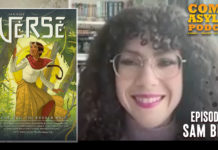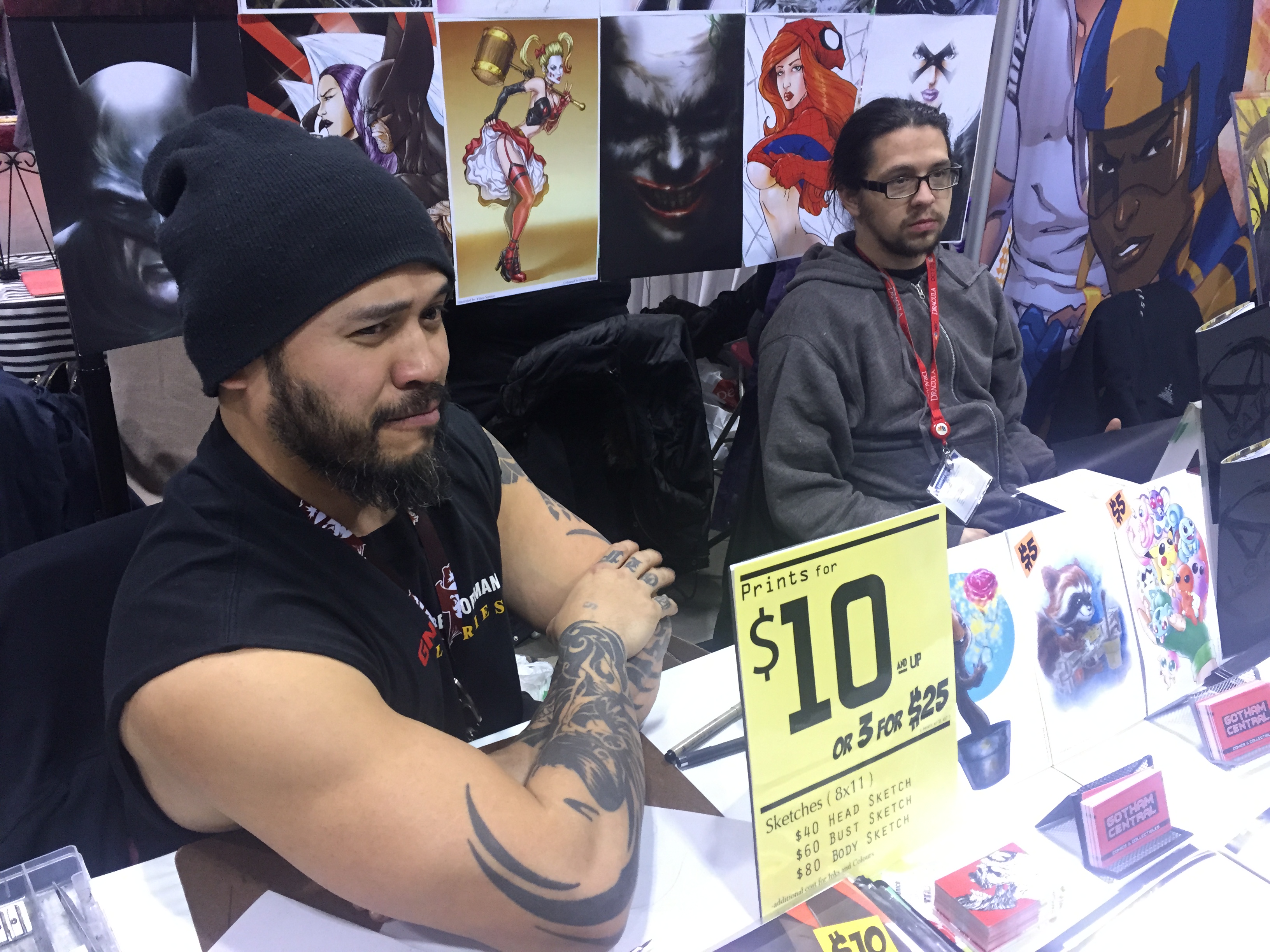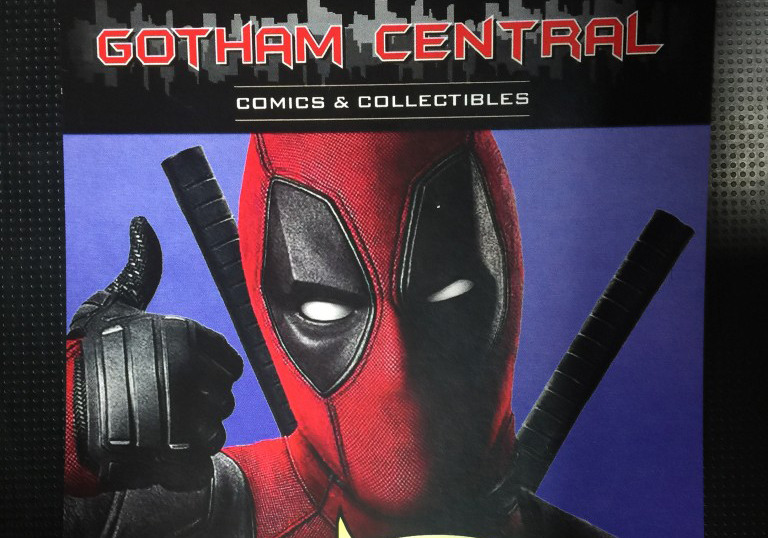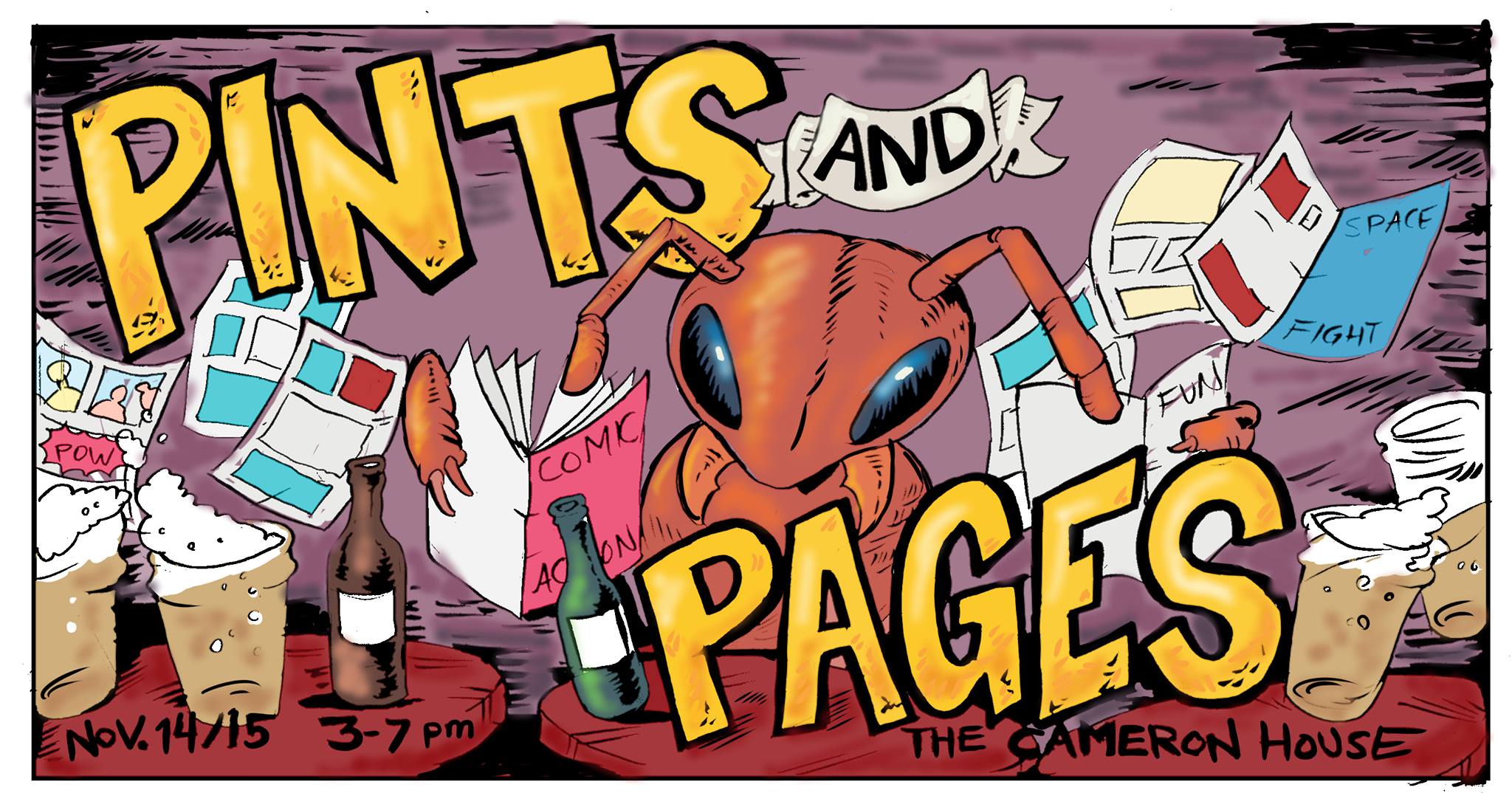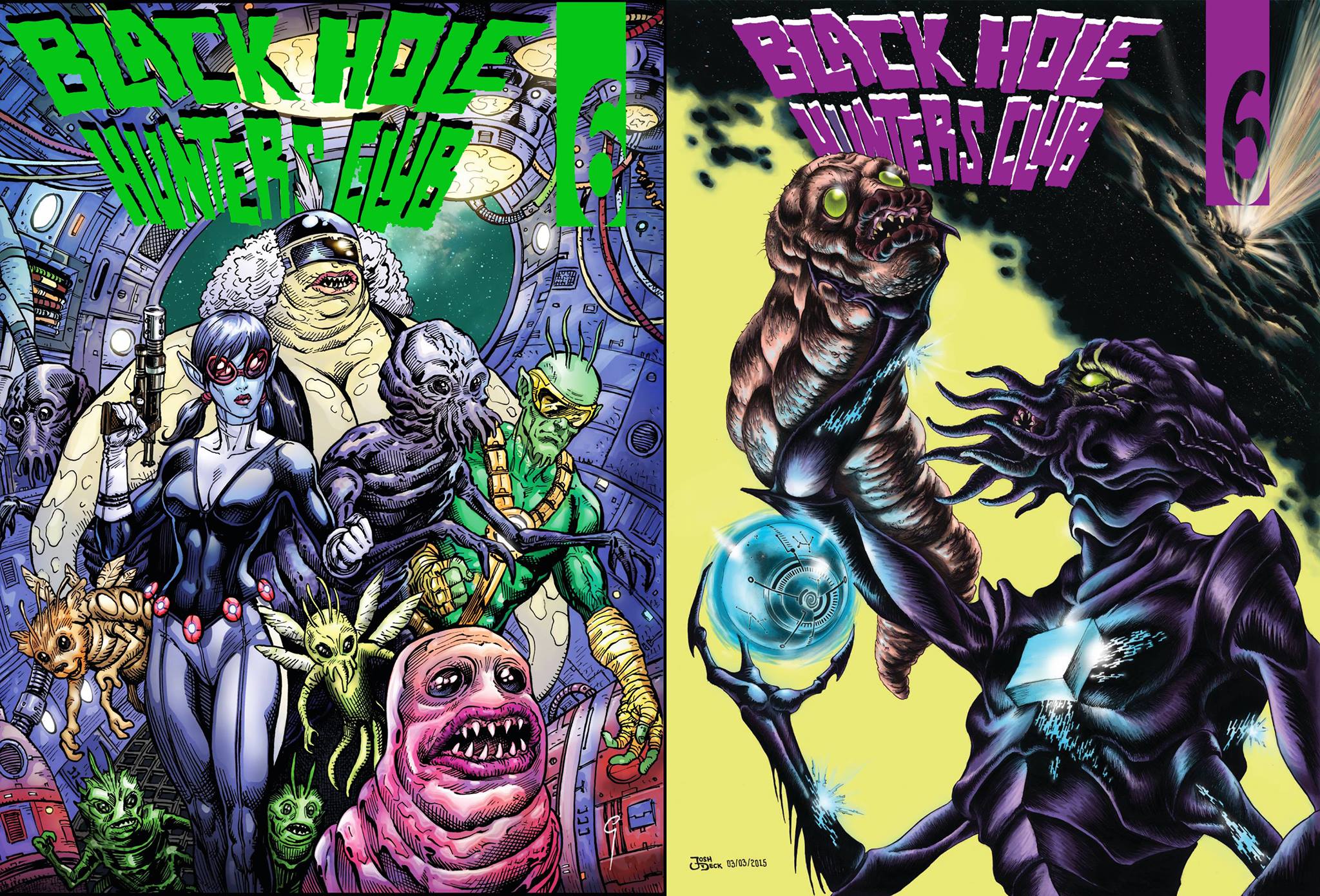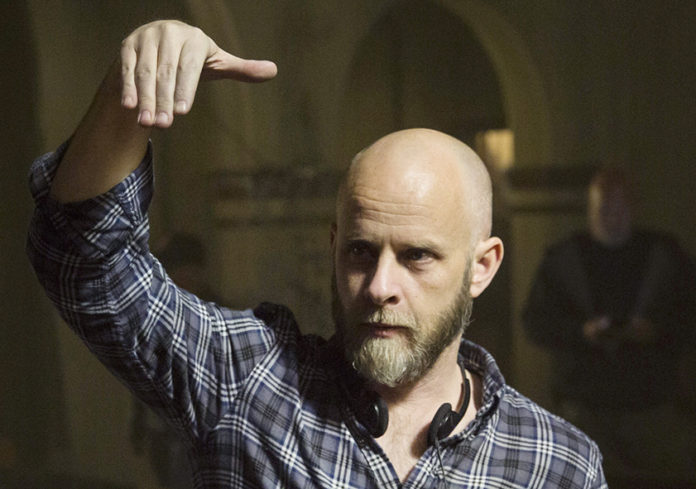
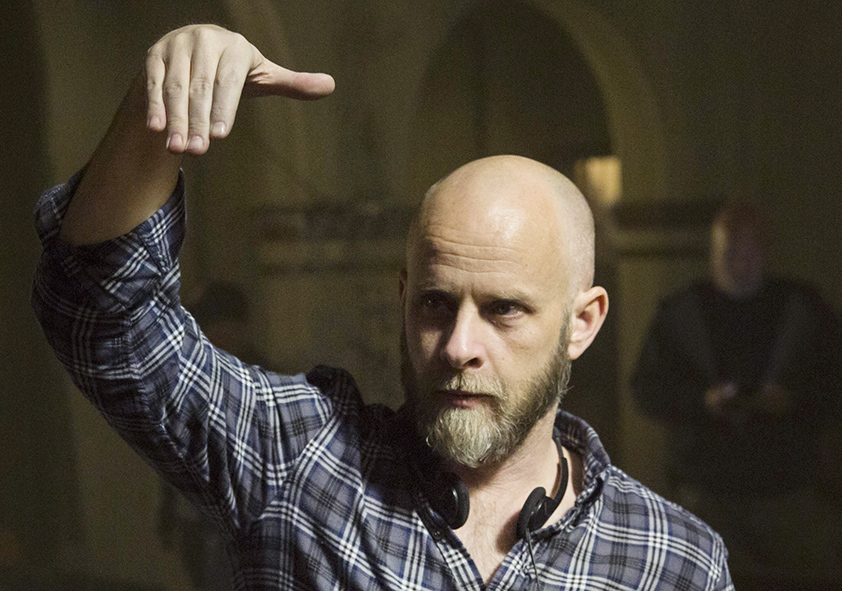
Fear the Walking Dead Showrunner Dave Erickson talks about Season Three storylines, filming in Mexico and completing the remaining second half episodes.
PVH: I understand you’ve had a busy day.
DE: (laughs) Yes, we wrap production next Wednesday. So things will start to ease up after that, so it will mostly be post work at that point.
PVH: Congratulations on the success of the show.
DE: Thank you.
PVH: Where are you shooting again?
DE: Baja, Mexico. When we settled on the boat at the end of Season One we went down to Baja Studios, which is the studio James Cameron built for Titanic, so there were existing water tanks there, stage space, and I knew I wanted to move the show south of the border so it worked out. Practically it was a good fit for us and from a story perspective it’s been good as well.
PVH: With regards to this season, is the Otto/Walker conflict a reminder of the role history and power structures play in our society?
DE: Yeah, I think very much so. One of the things this season is about thematically is appropriation, re-appropriation, and that’s a theme that resonates in many places, but definitely resonates on the U.S./Mexico border. The southwest of the current United States obviously has changed hands many times, and was stolen from European colonization, so I do think there is an attitude for Walker and for the nation that he mentions in Episode Seven that the apocalypse is the unveiling, an evolution – it’s not an apocalypse. So, it’s really a question of Otto, as we get to the mid-season finale, initially he’s a man who seems to have good intentions. There’s a little bit of malevolence, a bit of an edge to him that we see as early as Episode Two, but what we were hoping to accomplish – we didn’t want to introduce him as an obvious villain, and I think what we tried to do was evolve him over the course of the first eight episodes to a place where it was only when we got to the end that we realized exactly how deep his crimes were, how bad he actually was, and I think that’s the moment which we realized he was the true villain of the first half of the season and it’s also shortly thereafter when he dies.
PVH: And as we head into the mid-season finale, would you agree that with all of the change that’s happened so far this season that Fear is in a state of transition?
DE: There’s a lot of transition within the show between the U.S. and Mexico, and there’s a lot of questions for Madison as we move into the back half to whether she can maintain her place at the ranch. The other element that we continue to develop is the question of our Mexico story with the dam and Salazar and Strand, because ultimately what we try to do is play both storylines and start to see a degree of reuniting between our larger blended family between Salazar and hopefully Ofelia and Strand and Madison and et cetera, so I think for Madison, she’s really hell bent on finding some semblance of place that she’s sacrificed quite a bit through the first half of the season to make the ranch their home. But I do think that there are circumstances beyond her control and things will manifest as we move into the back half that are going to force her to make some compromises and to rethink possibly their place at the ranch.
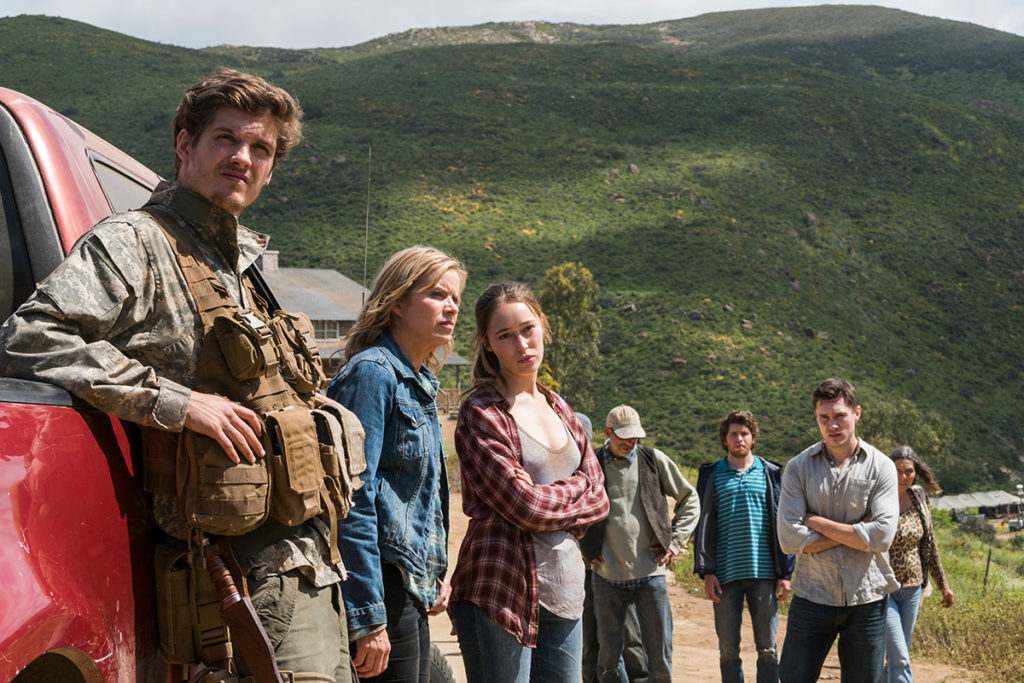 PVH: And that leads to my next thought that we’re often defined by our circumstances. Can you comment on how this affects Madison’s choices so far this season?
PVH: And that leads to my next thought that we’re often defined by our circumstances. Can you comment on how this affects Madison’s choices so far this season?
DE: I think for Madison it fully defines her choices and the decisions that she’s making. The loss of Travis in Episode Two, think – there were two things that forced her to double down on the ranch as a potential sanctuary, and I think the first element was the fact that, yes, this is a militia group that had to prepare for the end, and unlike most places she’s experienced so far, be it the Rosarito Beach Hotel, or Thomas’ compound, or the boat, there is a survivalist element here that makes it seem a lot more appealing, and it also makes her turn a blind eye to the dark and ugly elements of this place. So practically, there’s a strong reason for her to stay; I think emotionally, she is sort of gut-punched by the death of Travis and decides ‘we can’t move anymore, we can’t run anymore, we move we die’ and really becomes hell bent on holding this as a home, and that’s because of Travis’ death, and I think her attitude is, having lost him, she’s lost too much, she’s sacrificed too much, she doesn’t want to risk it again. I think her circumstances have put her in a position where she is aligning herself with some unseemly elements. Obviously Troy is sociopathic, he kills indiscriminately and tries to rationalize it and dress it up in a way that it seems logical, but she knows full well how dangerous he is, and she knows that’s going to be a very delicate dance that she has to navigate. And the more she learns of Otto, the more she realizes that in the objective pre-apocalypse, these are not people she would trust and frankly there are a lot of things about Otto Sr. that Madison abhors now and she would have condemned prior to the apocalypse, but her circumstances put her in a place where she’s forced to look at ‘what is the upside, how sullied am I willing to become in terms of my character, my morality and my ethics in order to protect my daughter and my son?’. That’s the balancing act she has, and of course when she gets to know Walker a little bit more, she beings to realize that Walker is the lesser of these two evils, he’s somebody who has more of a claim and a right to this place than Jeremiah does. So she puts herself into a position where she’s willing to sidestep and switch alliances not just because it’s good for her family, but also innately she understands that Walker is right. It’s a long-winded answer (laughs).
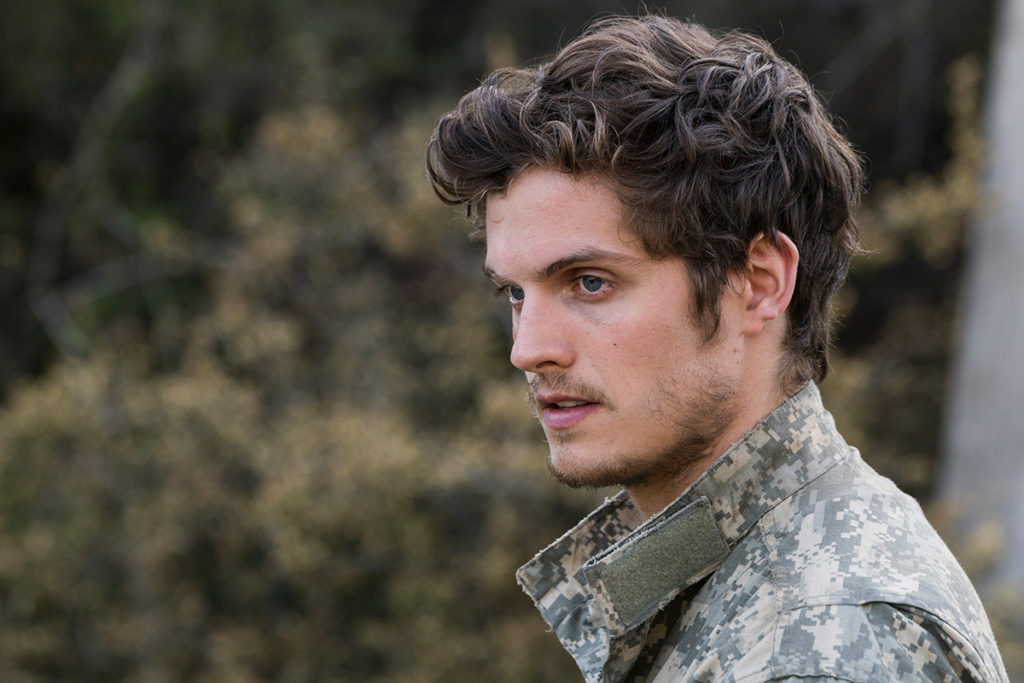 PVH: And what resonated with me and what I like about the show is when the villains never see themselves as villains. They do villainous things but never see themselves as villains.
PVH: And what resonated with me and what I like about the show is when the villains never see themselves as villains. They do villainous things but never see themselves as villains.
DE: What’s interesting to me is Troy, when we announce him in the premiere, it’s the only time in the show thus far where we are introduced to somebody who is obviously and overtly bad, immoral and villainous. And what tempers that to a certain degree is the strange conversation and relationship he begins with Madison; the intention was that we know he is sociopathic, we know he is endangering all of our people, but there’s something else that makes him tick, and this is where Madison’s skills and training in psychology and her experience as a guidance counsellor comes through, because she’s able to read Troy in a way that others might not be able to, and that’s what allows her to get under his skin as the season progresses. And it’s a fine balance with him; Daniel Sharman plays him with a strange humanity, which is what I think will hopefully maintain the character and allow the audience to invest in him but also allows the audience to understand why Madison has this relationship. There’s something in the way Daniel has portrayed this character – we start with a man committing very evil actions and slowly balance that out and so you get to understand who he is and what the dynamics of his family are. And with Otto it’s something of the inverse; I think Otto starts off feeling, and this is largely how Dayton Callie plays him, seeming somewhat avuncular, somewhat protective, and seems to have a sometimes sunnier disposition and bond with Madison because of it. And it’s a matter of slowly peeling back and coming to realize who is evil and who is not. And yes, I think what you said is absolutely right, ideally there should always be shades of gray to it, and I think we tried to realize that with all of our characters and that includes Madison, because there are things this season that she does, she covers up the murder of one of the rancher families and does so because in the big picture she thinks it’s better to hide that truth and protect Troy because she feels she can use Troy. We’ve seen Madison go to a dark place before, we’ve seen Madison kill, we know she has that in her, but she’s really pushing the ethical and moral balance this season, and I understand why she does it.
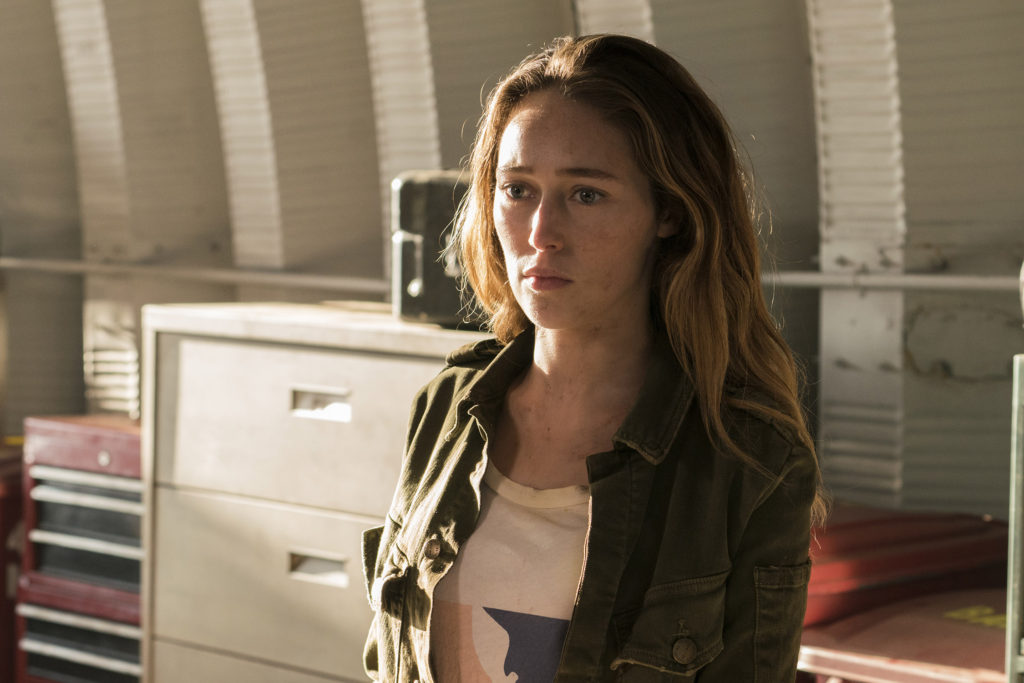
PVH: It was interesting to watch Alicia’s growth this season. Share your thoughts on her maturation during the Otto/Walker conflict?
DE: I think she gets turned around starting at the beginning of the season because she committed a murder at the end of last season in the name of saving Travis and protecting him. There’s a way to rationalize that, and then to have Travis so abruptly and so tragically killed I think really threw her for a loop. In the first few episodes, she’s grappling with that and trying to understand what is the point. I think that happens as we progress through the season, and especially as she becomes so involved in the exchange between the Ottos and Walker. She starts to mature a little bit and she’s willing to call bullshit, and she does that when it comes to Walker and his claims on Otto’s land. She will do it when we come into the back half of the season and really come into conflict with her mother to a degree. One of the things that are interesting about Madison, all of the things she’s doing to protect her family in the name of family – it’s really unilateral, it’s really her making these choices and what I think Alicia and Nick will come to understand is that there is something beneath that, and ultimately it isn’t completely about protecting the kids, there’s something that’s a little bit specific and off and compromised in Madison in who she is and how she was raised, what she did to survive starting when she was a little girl and there’s an interesting dynamic that happens for Maddie. You stop seeing your parents as Mom and Dad, start to realize as you pull back the layers you see their own humanity and their own flaws and their imperfections, and that’s what happens for Alicia and for Nick over the course of the season in a very profound way. So yeah, the sense that she’s starting to come into her own is only going to be amplified as we move forward into the back half of the season.
PVH: You touched on family. To what extent do the bonds of family and loyalty drive the narrative this season?
DE: I think through the first half plus it’s a huge factor and I think that’s part of the awakening for Alicia and Nick; I think it’s a realization that blind loyalty to family does not justify all the actions they take. When we get to the end of this season and we get to the mid-season finale Nick is going to do some things, take some actions really in defence of his mother and to spare her from taking more on, and it’s going to represent a profound shift for him as well as for Alicia, because as we move into the back half of the season, as things start to unravel as they often do in the apocalypse, they are going to question the choices that Madison’s made. The irony for me is that, for a woman who is so desperate to protect her family and so willing to compromise herself in that process, those actions will be what unravels her relationship with her own family. I think that as hard as she works to preserve and protect them, the means and the lengths that she’s willing to go to are not necessarily the same lengths and means that Alicia and Nick will abide by so in terms of emotional weight of what happens in the first half of the season, the loyalty of family will be tested and ultimately there will be a philosophical and emotional clash between mother and the siblings.
Fear the Walking Dead returns from hiatus on Sunday, September 10 at 9 pm on AMC.





